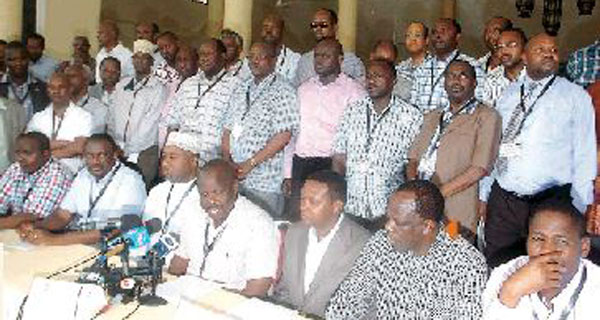×
The Standard e-Paper
Home To Bold Columnists
 |
| Governors during a meeting. Legal experts warn that MPs and senators risk violating the Constitution following the war they have waged against governors. [PHOTO: FILE/STANDARD] |
By Standard Team
Difficulty and acrimonious days lie ahead; that is if the current clamour by the Legislature for amendments targeting key aspects of the Constitution promulgated in 2010 – such as devolution – is sustained.